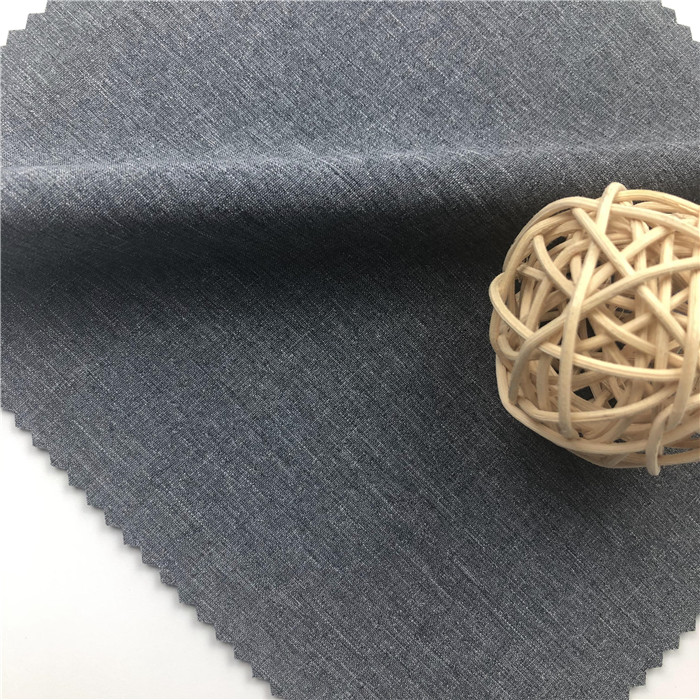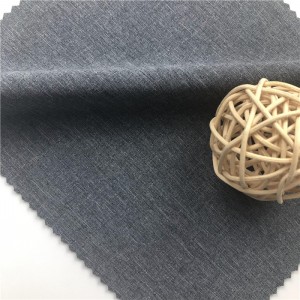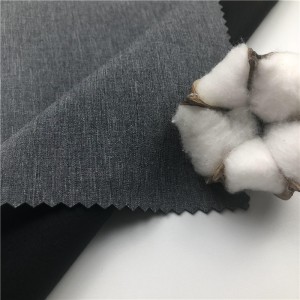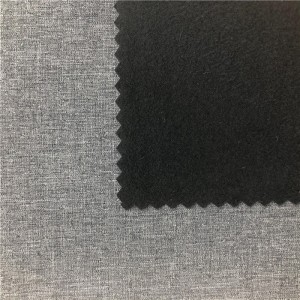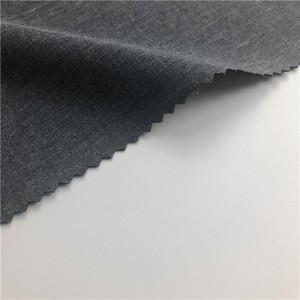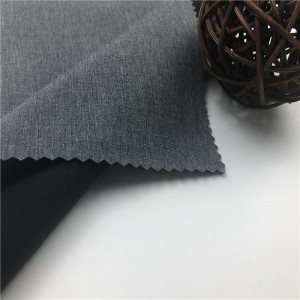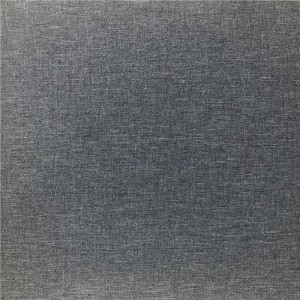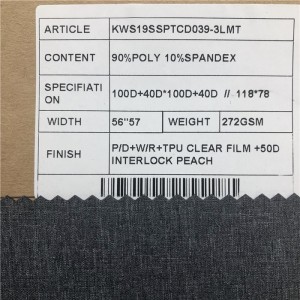|
PRODUCT CATEGORY |
Softshell Fabric |
|
ITEM NO |
KWS19SSPTCD039-3LMT |
|
Supply Type |
Make-to-Order |
|
Material |
90%POLY 10%Spandex |
|
Weight |
272 GSM |
|
Width |
56’’57’’ |
|
Finish |
P/D+W/R+TPU Clear Film +50D Interlock Peach |
|
Sample time |
5-7 days |
|
Feature |
High Stretch, Waterproof, warm and windproof |
|
Use |
Garment/ Outdoor wear/ Soft shell/Jacket/ Mountaineering wear |
|
Market |
USA/Canada/Australia/UK/Germany |
|
Certificate |
GRS/SGS/OEKO-TEX STANDARD 100 |
|
Place of Origin |
China (Mainland) |
|
Packaging Details |
packing in rolls with plastic bags or base on your requirement |
|
Payment |
L/C T/T |
|
Print Patter/ Custom design |
Sublimation print & Digital print as custom design |
|
MOQ |
1000M |
|
C0-Brand |
Adidas/ Nike/ H&M/ Vans/ Decathlon |
|
Sample Service |
Free |
|
Customized Pattern |
Support |
|
Our Service & Advantages |
Free sample available Customized pattern, width, and weight competitive price fast response and professional suggestion on all inquiries punctual delivery time 25 more years of experience in the field of fabrics |
|
Process Of Production |
1.Contact us 2.Developments 3.PO&PI 4.Bulk production 5.Payment 6.Inspection 7.Delivery 8.Long partner |
softshells are great for a wide range of outdoor activities where you’re likely to work up a good sweat. The most common type of softshell is a pant or jacket used as an outer layer for climbing, backcountry skiing in mild conditions, biking, and plenty of other cool weather sports. Softshell materials are also commonly found in hiking pants, too. Their stretchiness, breathability, and decent weather resistance work well in anything from a spring hike to peak bagging in the summer months.
With a thick construction, standard softshell jackets are the heaviest of the three outer layer options. Rain jackets can weigh as little as 5 ounces, and just about every major outdoor gear manufacturer makes a waterproof shell that weighs less than 10 ounces. And while hard shells usually are a little heavier, the majority of designs clock in at well under a pound.
Softshells, on the other hand, are noticeably heavier, with most standard models ranging from a pound to a pound and a half. Further, they generally are bulky and not packable. While this can be an issue for backpacking and weight-conscious activities like running, climbing, and backcountry skiing, casual users will find that the extra ounces don’t make much of a difference.
The amount of warmth will vary based on the thickness and construction of the jacket, but softshells offer more insulation than a rain jacket or hardshell. While rain jackets and hard shells are just that—thin shells designed to keep moisture out—a softshell is thicker and often includes a light interior lining.
However, because some softshells are very air permeable, they may not retain as much heat as a completely waterproof jacket. This is where a rain jacket or hardshell’s lack of breathability can come into play. If you’re working hard in a hard shell, you may get warmer (and often too warm) than doing the same activity in a softshell. But for pure insulation, a softshell still is the warmest outer layer.
By definition, the outer fabric of a performance softshell has a 4-way stretch (stretching horizontally and vertically) for the fantastic range of motion. This stretchiness and unparalleled mobility make softshells popular for climbing, scrambling while hiking or mountaineering, and backcountry skiing where you’ll be reaching, bending, and otherwise contorting your body. It also means that you can select a softshell with a slightly snugger fit, which is great for moving fast. All told, for active pursuits, we much prefer the quiet and mobile nature of a softshell over a rigid and bulky hardshell.
FAQ
1. Are you a factory or trading company?
We are a factory and we have a professional team of workers, Designers, and inspectors.
2. How to get a sample?
We will prepare free samples for you. For the first-time cooperation, the postage charge would be by the customer’s account. After placing orders, we will send free samples.
3. How long to deliver the products?
LAB DIPS takes 2-4 days;
STRIKE OFF takes 5-7 days;
10-15days for sample development.
Plain dye color: 10-15 days.
Printing design: 5-10 days.
For an urgent order, could be faster, please send an email to negotiate.

